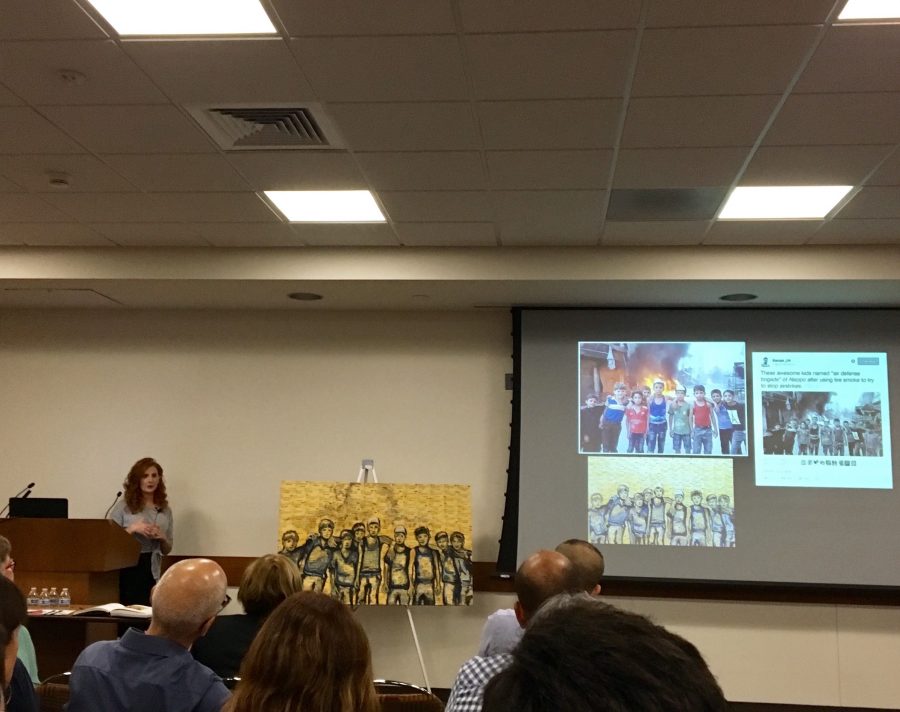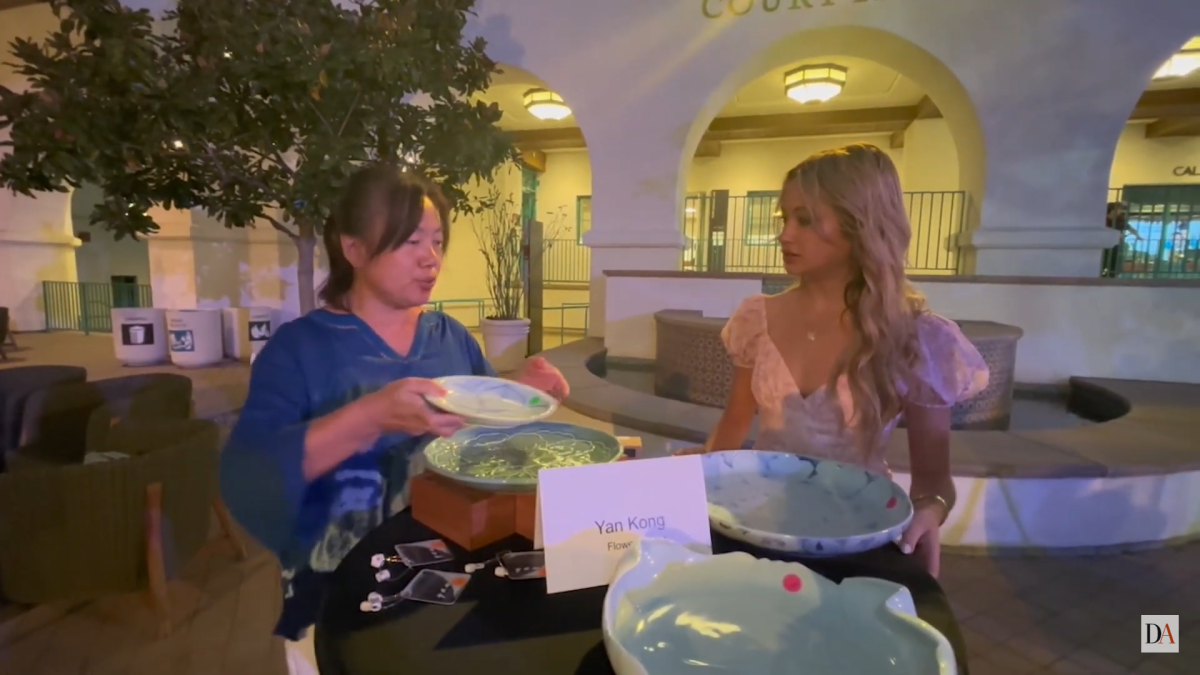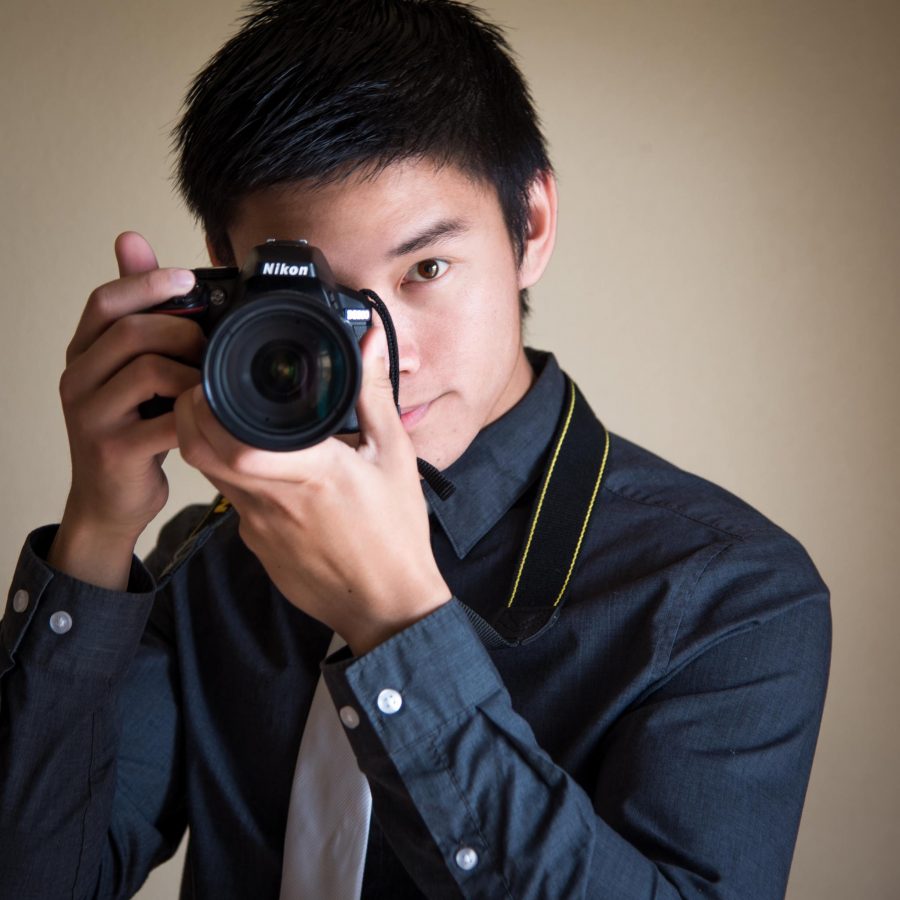Immigration is one of the most prevalent phenomena of 21st century.
According to the United Nations, the number of immigrants rose to 244 million internationally, a 41 percent increase since 2000. Twenty-million of these people are refugees. However, even in their often desperate situations, creativity can prosper.
A panel entitled “The Art of Migration: Challenges and Opportunities” came to San Diego State’s Conrad Prebys Aztec Student Union Thursday, Oct. 20. The roundtable session applied SDSU’s Common Experience program’s theme of movement to its discussions.
The Common Experience together with Arts Alive SDSU, SDSU’s College of Arts and Letters, the Circolo Italiano and the School of Public Affairs, along with several other organizations, sponsored the event.
Syrian-American artist, Kinda Hibrawi and Italian-Algerian author, Amara Lakhous, were invited to San Diego State to serve as the event’s keynote speakers.
The purpose of the panel was to both humanize and examine immigration globally through the lens of art and activism.
Born in Aleppo, Hibrawi, an acclaimed artist, feels an immense personal connection and duty to the Syrian refugee crisis.
“With whatever small voice I had, I was going to do something,” Hilbrawi said.
Hibrawi co-founded the Karam Foundation’s Creative Therapy Program, which offers arts education as well as health care for children living at the Syrian-Turkish border.
After running and volunteering for the program for two years and seeing conditions worsen, Hibrawi said that she could no longer look her countrymen in the eye and honestly say that “everything was going to be OK.”
Emotionally drained, Hilbrawi turned to her artwork. The result was a series of beautiful and poignant paintings portraying the faces of Syrian children overlain with tweets corresponding with a tragedy that had occurred in their hometown. The paintings were displayed for the panel.
“That could’ve been me. That could’ve been you,” she said, “They’re just people at the end of the day. Not looking to cause any problems, just looking for a better life.”
Amara Lakhous is an award-winning author and has written books such as “Clash of Civilization for an Elevator in Piazza Vittorio,” “Divorce, Islamic Style” and “Dispute Over a Very Italian Piglet.”
In his native Algeria, Lakhous was a reporter for a national radio station. However, in the wake of the Algerian Civil War of the early nineties, Lakhous was forced to flee to Italy after receiving death threats.
In Italy, Lakhous worked with other refugees and immigrants like himself as an interpreter and overall cultural mediator.
“Migrants and refugees are bridge builders,” he said.
With culture clash as a common theme, Lakhous’s eventual body of work was informed by this experience. Although he writes in Arabic and Italian, Lakhous noted literature’s power to transcend language barriers, referring to himself as a “smuggler of words.”
Respondent and Dean of the College of Arts and Letters, Dr. Norma Bouchard, contributed to Lakhous’s presentation by emphasizing his work’s vast importance in the contexts of both Italian migrant literature as well as modern Italy as a whole.
Dr. Nancy Marlin, the other respondent as well as professor of psychology and former Provost, then shared her own connection to the migration crisis. Marlin volunteers with the SOLACE project, which works with immigrants and asylum seekers at the Otay Mesa Detention Center, just north of the Mexican-American border.
“Visitors are rare,” Marlin said. “These people are living isolated lives and could use some human interaction.”
The event concluded with a question and answer portion, which quickly turned into a group discussion on the controversy of immigration in the current presidential election.
Keynote speakers and respondents alike sharing their unique perspectives with each other and the audience.
The event was the brainchild of Clarissa Clò, associate professor of Italian and director of the Italian Studies program at SDSU. She planned the panel with the goal of helping people to see immigration as a resource rather than a burden.
Clò wanted to emphasize that immigration is a situation concerning real people, not just statistics on the news.
“Once you give a face to something,” Clò said, “It’s much harder to dismiss.”















